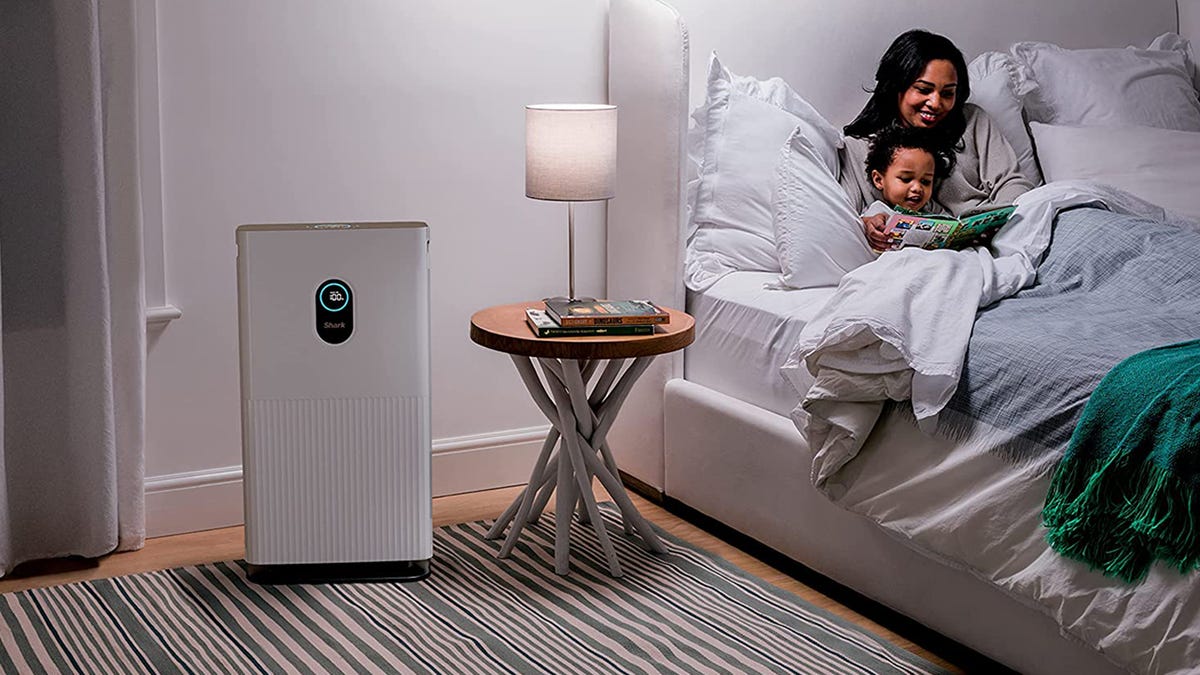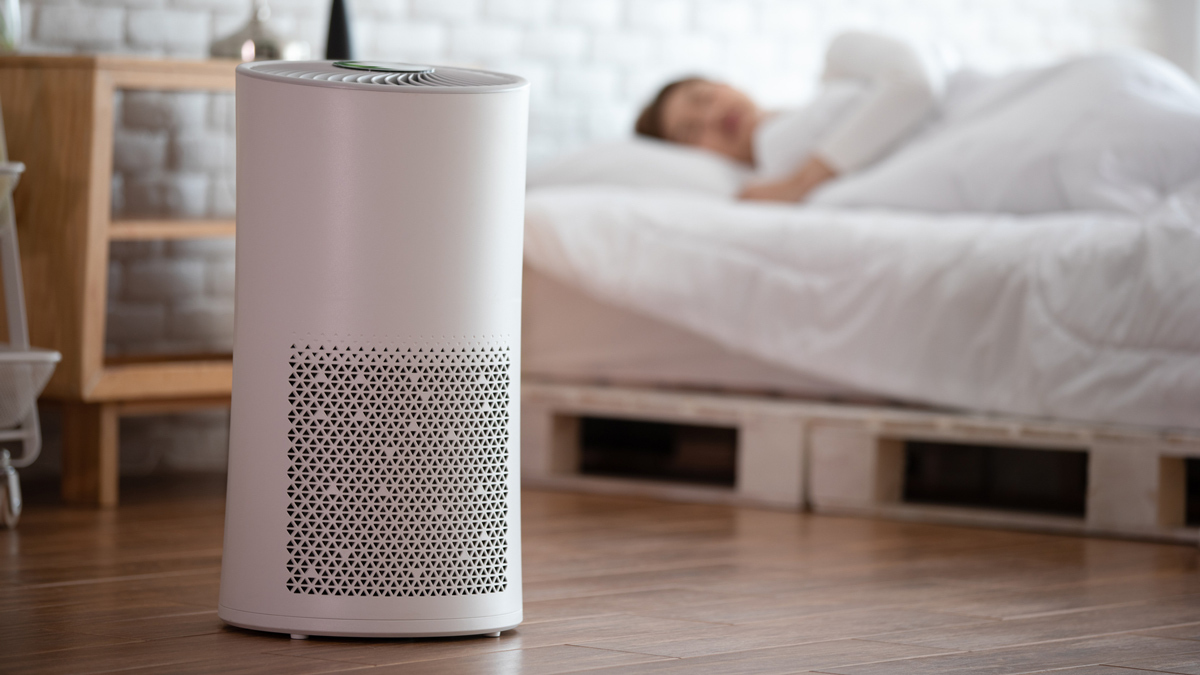Featured
Table of Contents
- – Recognizing Allergic Reactions and Triggers
- – Can Air Purifiers Aid With Allergies?
- – The Science Behind Air Purifiers and Allergies
- – Are Air Purifiers Right for You? Elements to ...
- – Making the Most of Air Purifiers for Allergies
- – Beyond Air Purifiers: A Multi-Pronged Method t...
- – Living a Breath Easier Life with Allergies

For allergy patients, spring blooms and cosy animals can bring even more sniffles and sneezes than happiness. Indoor irritants like dirt mites, pet dog dander, and pollen can unleash havoc on your breathing system, leaving you really feeling miserable. Air cleansers are often proclaimed as an option, promising cleaner air and relief from allergic reaction signs and symptoms. But are air purifiers truly worth the financial investment for allergic reaction victims? This thorough guide explores the scientific research behind air cleansers, their effectiveness for allergies, and the variables to consider when making a decision.
Recognizing Allergic Reactions and Triggers
To comprehend the function of air purifiers, allow's initial look into allergic reactions and their triggers:
- The Sensitive Feedback: Allergies take place when your immune system panics to a harmless substance, like pollen or allergen. This response causes the launch of histamines, creating allergic reaction signs and symptoms like sneezing, coughing, itchy eyes, and a runny nose.
- Usual Irritants: Indoor irritants include allergen, pet dog dander, mold spores, plant pollen that drifts indoors, and also roach irritants. These airborne fragments can irritate your respiratory tracts and activate allergic reaction symptoms.
Can Air Purifiers Aid With Allergies?
Air cleansers work by pulling in air, filtering out pollutants, and releasing cleaner air back right into the space. Right here's exactly how they can potentially profit allergy victims:
- Capturing Allergens: HEPA (High-Efficiency Particulate Air) filters, an usual kind made use of in air purifiers, are very efficient at capturing air-borne allergens like dust mites, pet dog dander, and pollen. By removing these triggers from the air you breathe, air cleansers can help in reducing allergy symptoms.
- Improved Air Top Quality: Air purifiers can additionally get rid of various other irritants from the air, such as smoke, dirt, and volatile natural compounds (VOCs) This general enhancement in air quality can be beneficial for allergy sufferers that are delicate to these additional triggers.
The Science Behind Air Purifiers and Allergies
Studies have actually shown that air cleansers can be useful in decreasing allergic reaction signs. Right here's a consider some vital study searchings for:
- A 2019 testimonial published in the journal "Current Allergy and Bronchial asthma Records" ended that air cleansers with HEPA filters can be efficient in decreasing allergy signs and improving high quality of life for individuals with allergic rhinitis (hay high temperature)
- A 2018 research released in the journal "Annals of Allergy, Asthma & Immunology" located that utilizing an air purifier with a HEPA filter in the bed room considerably minimized dirt mite allergen levels and enhanced sleep high quality in people with bronchial asthma.
However, it is necessary to note that research likewise suggests some limitations:
- Air Purifier Insurance Coverage: Air cleansers are most effective in the space where they are put. Their influence on irritants in various other parts of your house could be marginal.
- Extent of Allergies: While air purifiers can assist, they may not be a complete remedy for severe allergies. Drugs and other allergy administration strategies could still be needed.
Are Air Purifiers Right for You? Elements to Take Into Consideration
Below are some essential variables to consider when choosing if an air purifier deserves it for your allergic reactions:
- Severity of Allergies: If your allergic reactions are mild and well-controlled with medicine, an air purifier may not be required. For those with moderate to severe allergies, an air purifier can be a valuable tool in taking care of signs.
- Kinds of Irritants: Think about the main triggers for your allergic reactions. Air cleansers are most efficient for airborne irritants like allergen, animal dander, and plant pollen. They may not be as useful for allergens like mold that expand on surface areas.
- Way of living and Environment: If you have family pets, stay in an area with high plant pollen counts, or have issues concerning indoor air top quality, an air purifier can be helpful.

Making the Most of Air Purifiers for Allergies
If you make a decision to purchase an air purifier for allergies, here are some pointers for maximizing its performance:
- Pick a HEPA Filter: Seek an air purifier with a HEPA filter licensed to catch particles as small as 0.3 microns.
- Right Dimension for the Space: Make certain the air purifier has a Clean Air Distribution Rate (CADR) that is suitable for the size of the room you intend to utilize it in.
- Positioning Issues: Put the air purifier in the space where you spend the most time, such as your bedroom.
- Routine Filter Maintenance: Replace HEPA filters according to the producer's guidelines to keep optimum performance.
- Combine with Other Techniques: Air purifiers are not a one-size-fits-all solution. Integrate them with various other allergic reaction administration methods like medication, routine cleansing, and allergen-proof bed linens.
Beyond Air Purifiers: A Multi-Pronged Method to Allergy Administration

While air cleansers can be a beneficial tool in your allergy arsenal, they are not a magic bullet (If you're looking to buy an Air Purifier then Air Cleaners Australia is the best destination.). A comprehensive strategy that integrates air filtration with other techniques is key to achieving lasting allergy alleviation. Right here are some added techniques to consider:
- Medication: Antihistamines, decongestants, and nasal corticosteroids, suggested by your physician, can properly manage allergy signs.
- Allergic Reaction Screening and Immunotherapy: Recognizing your specific allergens through allergy testing can lead the way for immunotherapy, a treatment that assists desensitize your body immune system to irritants with time.
- Air Quality Administration: Normal cleansing with a HEPA-filtered vacuum cleaner and allergen-specific cleansing products can substantially decrease allergen, family pet dander, and other allergens in your house.
- Managing Moisture: Mold thrives in moist environments. Using a dehumidifier can help manage moisture degrees and avoid mold growth, a typical indoor irritant.
- Lifestyle Adjustments: If you have allergic reactions to plant pollen, remaining inside during optimal plant pollen seasons and bathing after spending time outdoors can help minimize direct exposure.
- Bedding and Surface Areas: Encasing pillows and cushions in allergen-proof covers can considerably lower dust mite direct exposure. Regularly washing bed linen in warm water helps eliminate irritants.
Living a Breath Easier Life with Allergies
Remember, taking care of allergies is a continuous procedure. By comprehending your triggers, applying a multi-pronged technique, and possibly integrating an air purifier into your approach, you can significantly reduce allergy symptoms and breathe less complicated.
Additional Considerations:
- Consulting a Doctor: If your allergic reactions are severe or not well-controlled with medication and way of life modifications, speak with a specialist for tailored suggestions.
- Air Top Quality Surveillance: Think about using an air high quality monitor to track irritant degrees in your home and adjust your monitoring techniques appropriately.
- Long-Term Financial investment: A good quality air purifier can be a long-term investment in your health and wellness and well-being.
By taking a proactive technique and embracing a combination of these strategies, you can create a healthier and allergy-friendly atmosphere, allowing you to delight in a breath simpler life.
Table of Contents
- – Recognizing Allergic Reactions and Triggers
- – Can Air Purifiers Aid With Allergies?
- – The Science Behind Air Purifiers and Allergies
- – Are Air Purifiers Right for You? Elements to ...
- – Making the Most of Air Purifiers for Allergies
- – Beyond Air Purifiers: A Multi-Pronged Method t...
- – Living a Breath Easier Life with Allergies
Latest Posts
Fascination About Can Yeti Ramblers Handle Dishwasher Cleaning?
Getting My Is Washing Yeti Ramblers In The Dishwasher A Good Idea? To Work
Are Air Purifiers Well Worth It for Allergic reactions? Breathing Easier with Science-Backed Solutions
More
Latest Posts
Fascination About Can Yeti Ramblers Handle Dishwasher Cleaning?
Getting My Is Washing Yeti Ramblers In The Dishwasher A Good Idea? To Work
Are Air Purifiers Well Worth It for Allergic reactions? Breathing Easier with Science-Backed Solutions